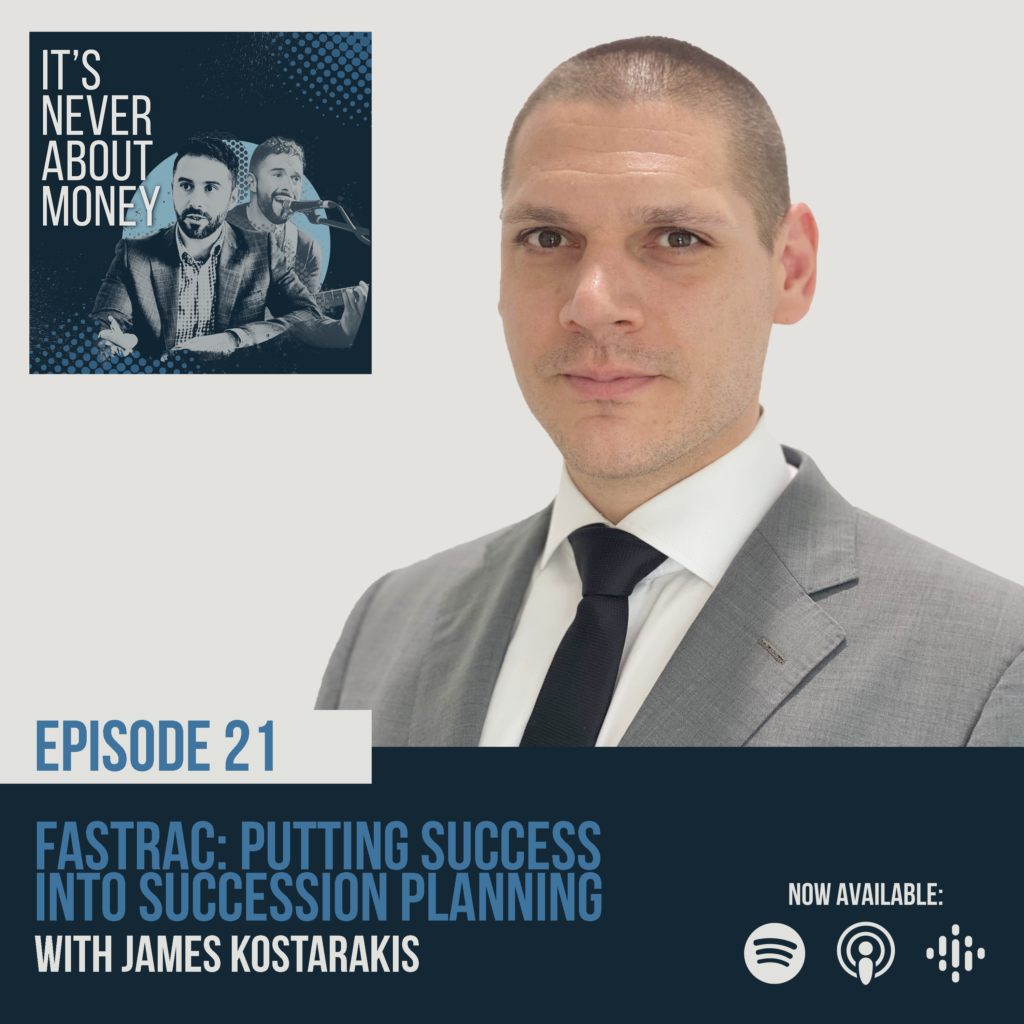James Kostarakis is Managing Director of Fastrac Foodservice, a second-generation family owned and operated food wholesaler to the hospitality sector.
And he knows a thing or two about succession planning.
Not only did James see it firsthand on his transition into the family business, when he took over from his father. But, he also is in the midst of planning for his own transition out of the business, some 20 years later.
And although in his case, James is not planning for a family member to succeed him, the process is just as important.
“It’s about ensuring that leadership style, wants and culture, that we embedded for 30 years continues through”, says James.
Our discussion went through James’ experience and what he has learnt along the way.
Here are James’ four key tips for managing a successful succession plan:
1. Succession planning can happen at any stage
James advises that succession planning can happen at any age, as long as the time is right.
When you make a decision to pursue life outside of the business, it doesn’t matter what age you are, you can start planning.
“Whether you’re 40, 50, 60 or 70, that is the time to start making your plans.”
However, James warns, “you can’t rush it… the business has got to be stable”.
2. You have to have a vision for yourself, personally
James advises that it is important to have a plan, an idea or a goal for yourself personally.
Working for yourself can be fast-paced and long hours. The transition to retirement can be a shock for some, and finding themselves suddenly without the commitments of a business can result in feelings of loss or restlessness, or slipping back into the ‘usual’ routine.
“A key part of the journey is for the current owner to find their ‘go-to’. Their retirement plan… if you don’t have that, then [they’ll] keep coming back into routine, meddling a little bit.”
3. You need willing and able participants
Succession planning can only happen if you have people who are willing to take on the responsibility of the business when you exit.
Once you have that, you then need to work on the capability of these successors.
Whether this is through further education, training or work experience, you will need to set up structures to ensure that there will be the appropriate skills within the business to help it continue on successfully into the future.
4. Use professionals to avoid any damage to relationships
James’ last piece of advice is his most important consideration, especially for succession planning in a family business.
“Deciding who’s going to be the next chief… that’s something that you need to make a choice on. That’s hard.”
Hiring professional facilitators and mentors are so important for protecting family dynamics. They help with an independent assessment of skills, strengths, managing the transition and holding all parties to account.
“Quite often the facilitator is the umpire, putting out fires during this transition,” reflects James.
To hear more about James’ succession planning, listen to Episode 22 of It’s Never About Money.







